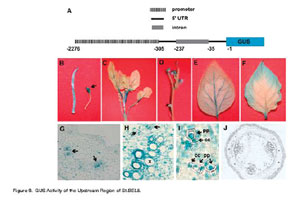
He has worked diligently as a member of the Korean Society for Horticultural Science, and the American Society for Horticultural Science since 1986. He has been also a member of the International Horticulture Congress since 2002, and the chair of the Dept. of Horticulture at YU since 2001, and the director of the Garlic Institute since 2006. He has written and published numerous theses during the time between 1991 and the present.
One of his theses was published in Plant Cell known as one of the world's top four scientific magazines. Recently The Yeungnam Observer interviewed him to learn about the rationale behind his thesis in Plant Cell, his motivations, and any future plans for research topics.



YNO : Hello, Dr. Suh. Congratulations! I heard that your treatise, "Dynamics of Mobile RNA of Potato Involved in a Long-Distance Signaling Pathway", was published recently in the magazine called Plant Cell which is known as one of the world's top four scientific magazines; with Science, Nature, and Cell. How do you feel about that?
Dr. Suh : First of all, I'm very happy for that. Although some of my other theses were printed in scientific magazines, I feel differently this time because the magazine is considered as one of the world's top magazines in the field. Also I am so happy to learn that my treatise published in Plant Cell is being talked about by many magazines, newspapers and on the internet. I am proud that this news has affected the public relations of YU with outside world. I hope to continue achieving excellent results in my future studies.
YNO : Your study is "Dynamics of Mobile RNA of Potato Involved in a Long-Distance Signaling Pathway". But, it is too hard for students to understand. Could you please explain it with easy words, so our readers understand what it is about?
Dr. Suh : This study found two points: 'What is the means for sending St BEL5 which is created in the leaves of potatoes to the roots, meaning the potato itself, under the ground' and 'How does St BEL5 influence the growth of potatos ?' Myself and US researcher Dr. David J. Hannapel conducted joint research to answer these questions. As a result, we found that St BEL5 RNA is moved to the root through phloem-bot, the plant tissue responsible for the transport of sugars and other nutrients from the leaves to all other parts of the plant. This was the first time ever to discover the fact.
General potatoes can't grow to maturity in a few days, but when the genes from St BEL5 was thrown into the roots, potatoes grew to near maturity after four or five days. It is meaningful that potatoes can have the possibility to be a day-neutral harvest.
YNO : When you decided to execute the study, you must have had reasons to start the research . Then, what was your motive to start the research?
Dr. Suh : Potatoes are an important crop and is referred to as one of the world's top four crops along with rice, wheat and corn, but it is also a healthy food with many essential amino acids and is low in fat. Potatoes, however, have a weak point of being susceptible to sunlight. We looked for a gene which can produce the potatoes without the limitation by sunshine. During our research, we found the gene St BEL5, and finally discovered the course of its movement.
YNO : You have done a lot of research and written many treatises. Can you please tell us about some of the most memorable moments you have encountered during your researches?
Dr. Suh : I remember that I once had a dream in which I solved a difficult problem for a research project. When I was a grad student in the Department of Horticulture at Iowa State University, I went deep into a really difficult process of my study. My tutor even asked me to stop working and take some rest. However, I couldn't stop working. Then, one day I had a dream in which a grandmother said "Just cook some noodles!" to me, then I woke up in the morning. I think I got some clues from the dream and solved the difficult problem.
YNO : Wow! That is so surprising. What a dream! Now, what are you planning on your next study or research?
Dr. Suh : My next study will be in the extension of my previous treatise in Plant Cell. This treatise will address that St BEL5 RNA is moved to the root through phloem. I should find the material that can move RNA of St BEL5. I think that it will also be the first of its kind in the world.
YNO : Finally, do you have anything to tell the students who want to be botanists ?
Dr. Suh : Not just for the students to become botanists but for all the students who want to be natural scientists, I want to tell them that no one at the start is really interested in research or experiment. Suppose you want to be a scientist. Then it is necessary of course that you make every effort working day and night to achieve what you think is an important discovery or contribution, with your head filled with your study. Time to time, you may feel failure and discouragement because of bad results. You have to overcome such bad feelings; otherwise, you can't become an able scientist. For instance, Sir Isaac Newton made many mistakes during his research and felt deeply frustrated. However, with his perseverance he became one of the most important and greatest scientists in the world. Always try your best, then eventually your efforts will be rewarded in the end.


